Sixty Seconds With... AfroCongo music star Innoss’B: School meals, ending hunger and DRC
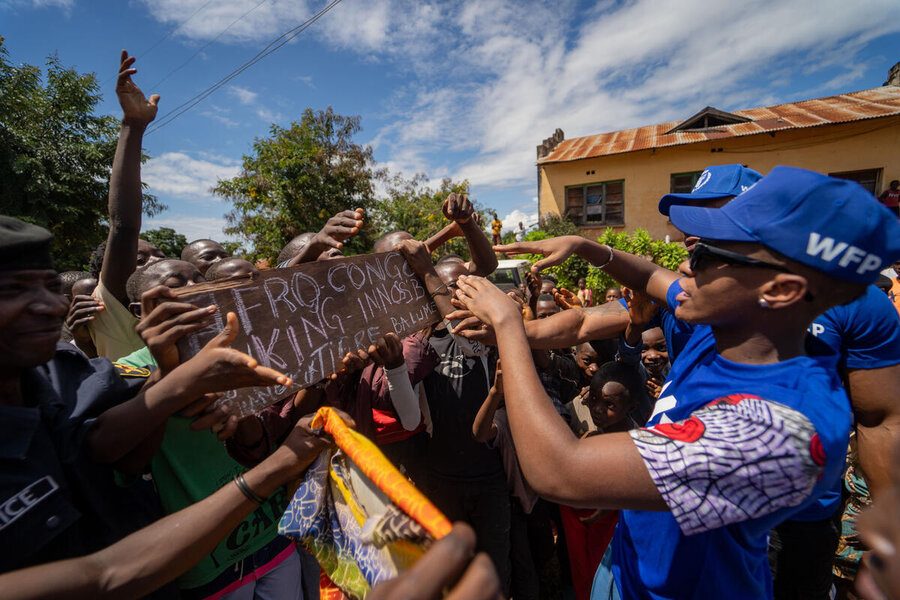
Congolese singer-songwriter Innoss’B is no stranger to hardship – the 27-year-old was born Innocent Balume, in North Kivu, one of three regions in the Democratic Republic of the Congo currently riven with fighting and food insecurity.
To many young people, his success as a pioneer of the AfroCongo genre embodies the hope that dreaming big is possible, despite the odds – across the DRC, more than 23 million people are acutely food insecure; 7.3 million are internally displaced, while 6.3 million children, and pregnant and breastfeeding women, are malnourished.
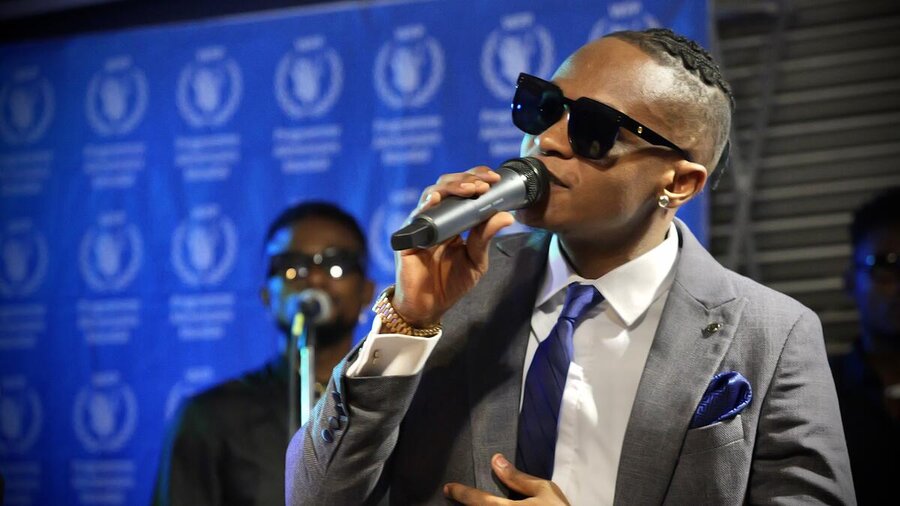

In March, the Kinshasa-based artist – famous across Africa and beyond for tracks such as ‘Sete’ and ‘Olandi‘ – joined the World Food Programme as a High-Level Supporter to raise awareness for WFP’s work in tackling hunger, both in emergencies and changing lives over the long term. Here, he talks about his childhood, what he likes to do at the weekend, and his dream of holding concerts for children who can’t make it to venues in the city.
Hello – how does your music tie in with your goals as a humanitarian?
I can’t ignore the background I come from – there are many people suffering, starving, and living in very difficult conditions. So, my main goal is to help out when I can. It can be through my (non-profit) Innocent Foundation or with partners like WFP. I’m all about being useful to the community and everybody in need.
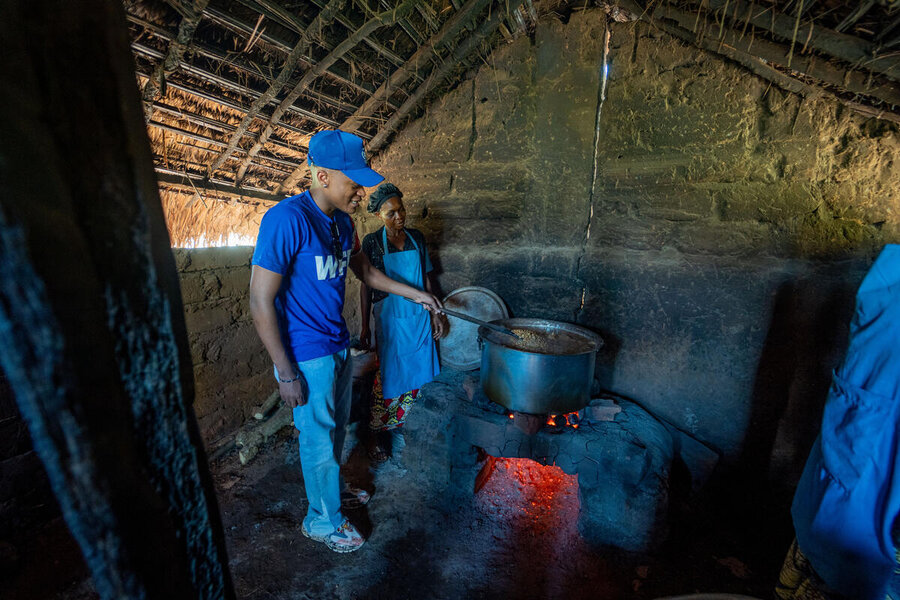
How familiar were you with WFP?
Growing up, different organizations came to our schools and communities to raise awareness about their work. WFP was the main organization we were really interested in. People still have a hard time getting access to food.
You are particularly passionate about meals reaching children in schools
We used to treat school as some sort of punishment back in the day. There was no food. So hunger was kind of normal. Since then, I have visited schools in Kalemie, Tanganyika, deep in Congo (with WFP). You can see children now enjoy studying – they can look forward to lunches and staying in education.
Stock rooms are full – people are happy with WFP’s commitment to staying the course. But this, of course, requires funding.
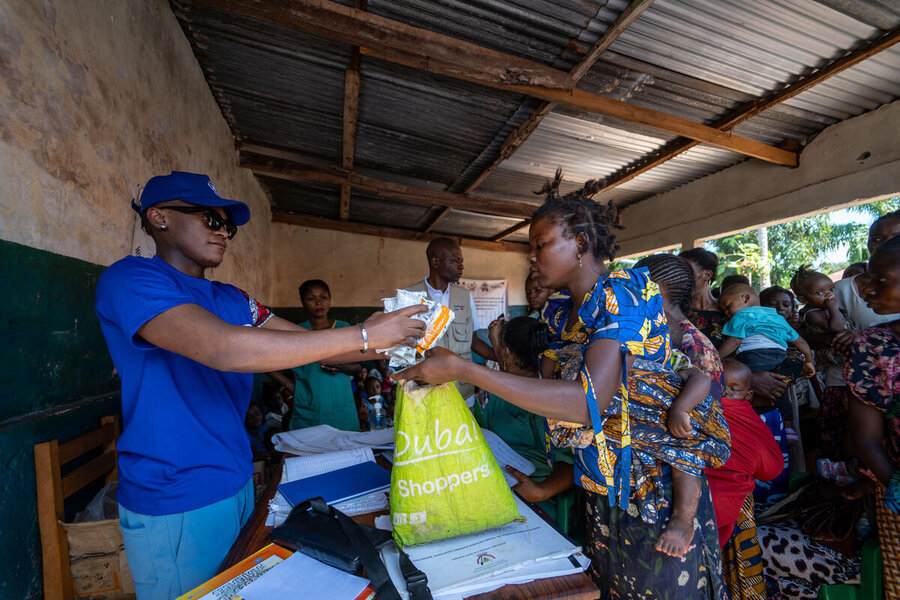
What struck you as particularly cool in visiting schools, perhaps through a gender lens?
In my eyes, boys and girls were all equal – the same schools, the same facilities. Everyone had the same values, confidence, and resources. That was nice. I also visited a nutrition centre for younger kids and babies, where pregnant and breastfeeding women get access to information about having a proper meal. Growth for children is good all around because when the kids are fine, the parents are fine.a
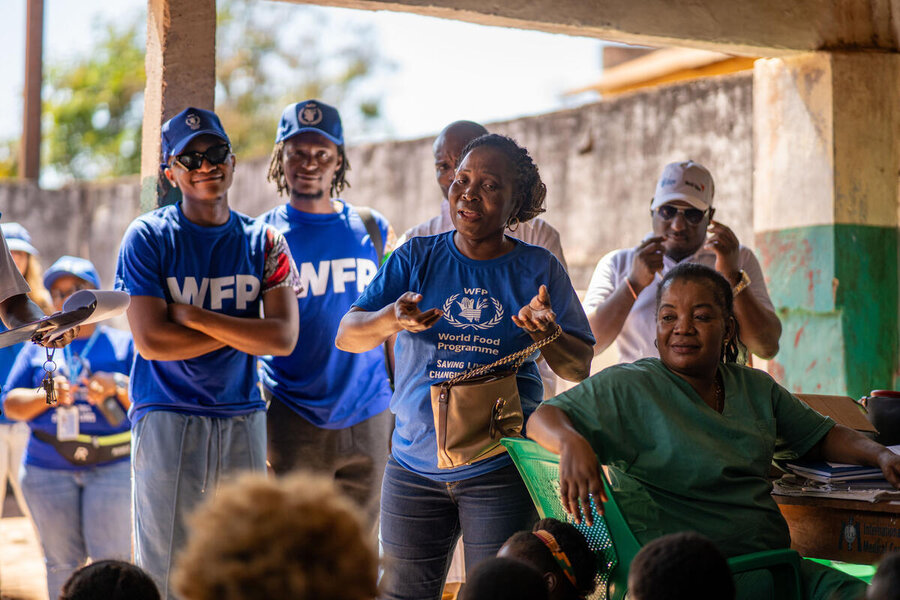
What is your favourite way to spend a weekend?
I listen to new music that I’ve been making in the studio, go outside, hang out with my friends, and then listen to music other than my own. Other times, I prefer staying at home, spending time with my daughter, my family, and just living a regular life.
What would you say to your younger self?
Be more determined – don’t think because you’re young, you have time.
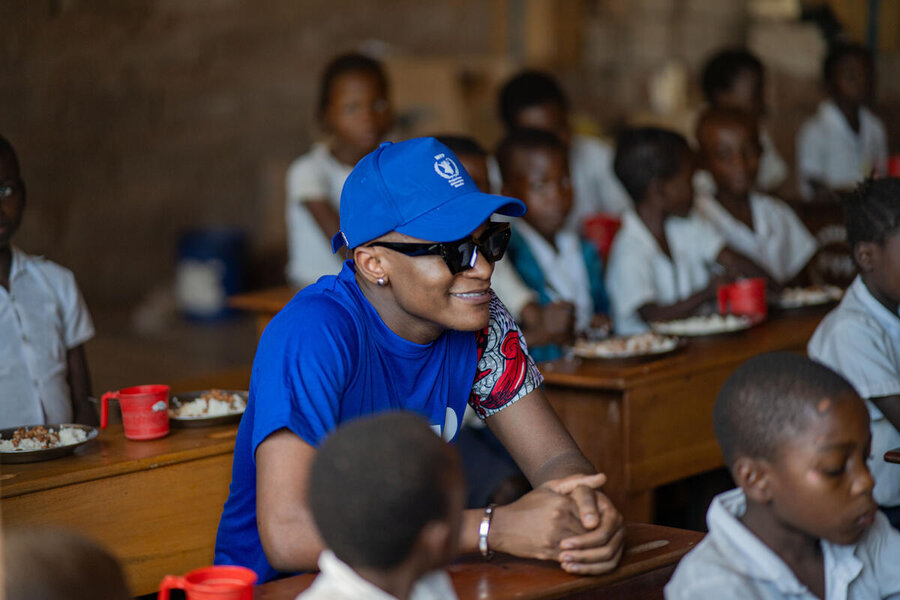
What is your advice to young people?
Don’t lose hope; keep pushing for what you love. Every day, try to get closer and closer to your dreams. If you lose hope, you are by yourself and dropping the key that could open the next door. So don’t lose hope. Life is hard. Nothing is easy. You have to keep your hope. Do what you love and do it right.
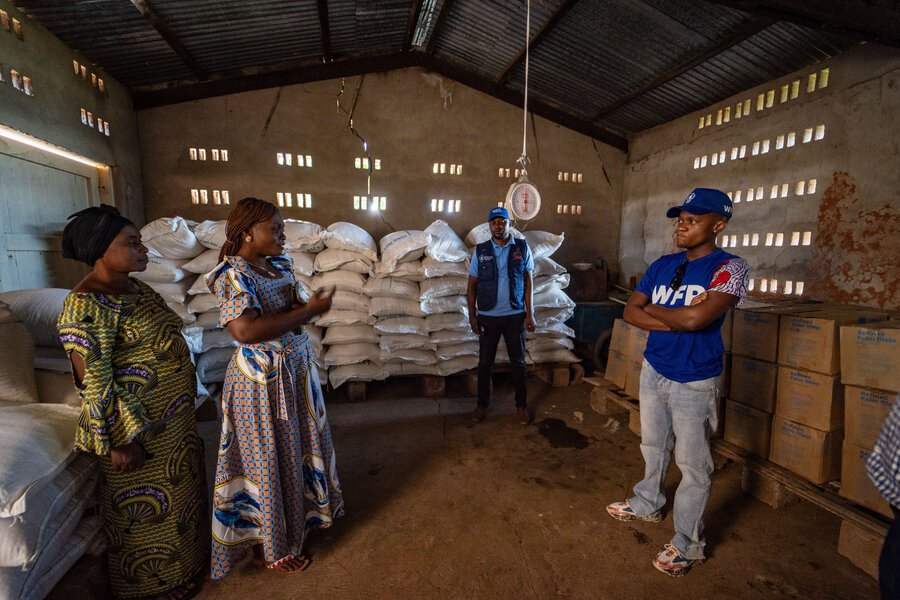
If you could learn a new skill, what would it be?
I want to learn the piano. I love the sound. I have long fingers, but I don’t play it well yet. I would also try skiing. In Congo, we have everything – ice and snow high up in the mountains. But we don’t have access. There is not enough security for me to show up and say, ‘I want to do skis now.’ I like to slide. Also, I need to learn to ride a motorcycle.
Have you got any pets?
I used to have a cat. And dogs – many dogs. In my childhood, I lived with many goats. My dad was selling goats. I don’t think we used to have them for milk – maybe for meat. We used to get milk from cows. I never lived with cows. They’re big, and I’m scared. Even though these days I’m working out, I’m still small-sized!
What would you like to see from WFP?
I would like WFP to take me to more places so I can learn more about my people and my country – learn more about the work we are doing and how the people who benefit from it are enjoying it.
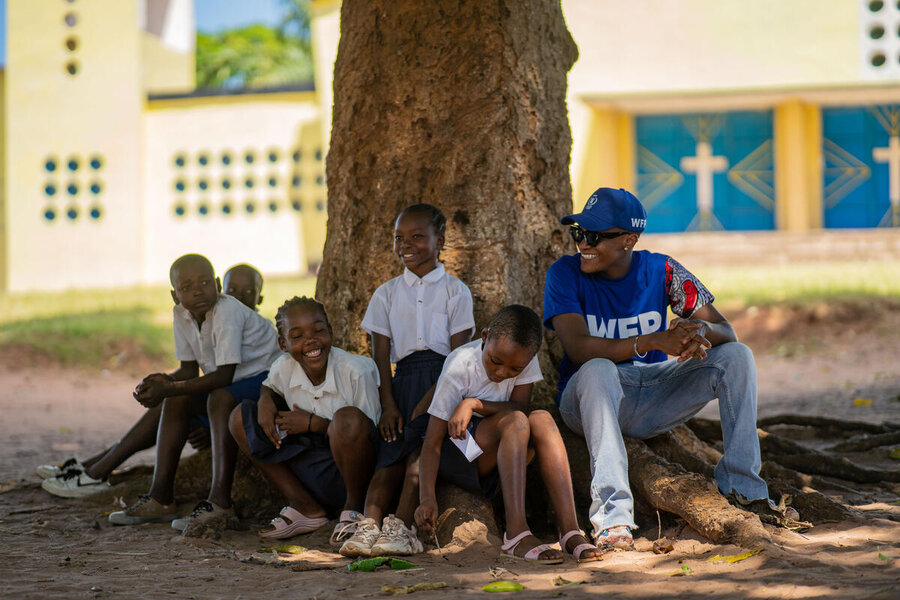
Tell us how people respond to you when they see you
Everywhere we go, I’ve found that fans of my music think I am too big or expensive to get. You see, when I meet people, they get hyped. They want to sing for me, me to sing for them... the whole of it. I want WFP to be able to organize a big event, like a party, so that the same things that happen in the capital happen in those villages. People would love very much for their favourite artist to do a special show for them; it’s something they’d never forget.
Also, I would love WFP to keep doing what we’re doing right now – getting access to great platforms, internationally known, so I keep spreading the word.
You are known for doing Michael Jackson impressions when you were starting out. For many of your young fans today, you are the star they look up to. How does that feel?
The other kids looking at me like that? It’s crazy. It’s fun to watch. I try to do what I didn’t get from my idol. I didn’t get any closer to him. I didn’t have access to him. So when I see a particularly big fan of my work, I try to leave them with good memories, be cool with them, talk with them, and do regular stuff with them so they think, ‘Life is good.’



